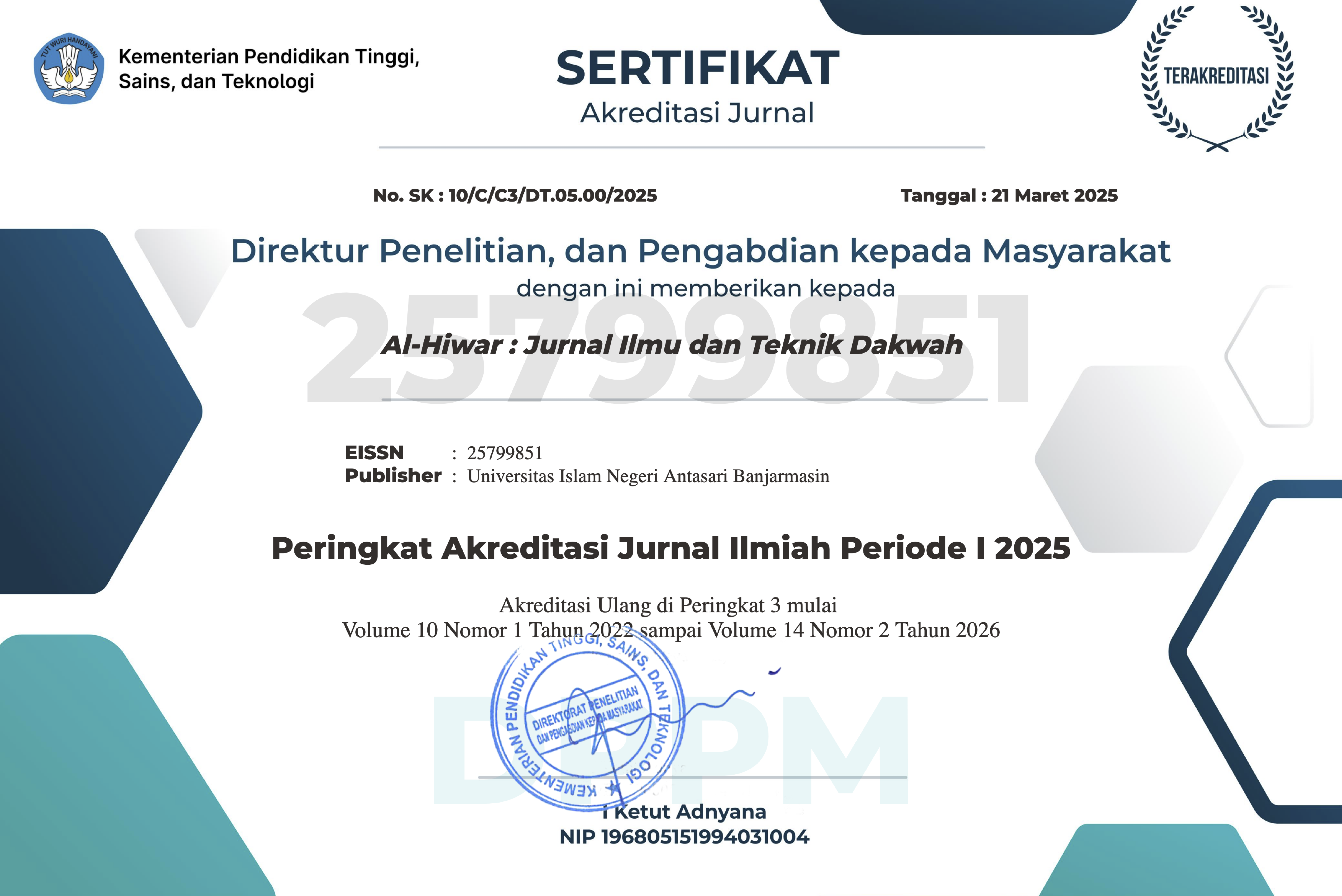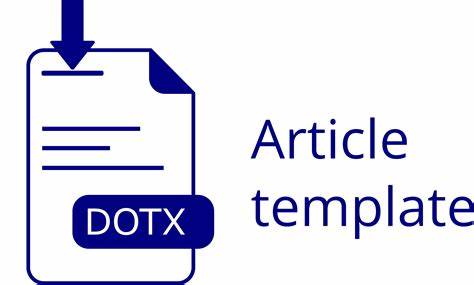Medjora Cafe Public Relations Campaign in Building Brand Image As An Eco-Friendly Cafe / Kampanye Public Relation Medjora Cafe Dalam Membangun Brand Image Sebagai Kafe Eco-Friendly
DOI:
https://doi.org/10.18592/alhiwar.v13i1.14371Keywords:
Brand Image, Eco Friendly, Campaign, Medjora CafeAbstract
Medjora Cafe carries an environmentally friendly concept. This is based on environmental problems regarding waste in Kemuning Village, Karanganyar Regency. Medjora Cafe implements policies to campaign for public relations in handling environmental problems, especially waste among the culinary industry in Karanganyar Regency. Data collection by interview, observation and various documentation at Medjora Cafe. Medjora Cafe in implementing campaign communication about environmental problems, by reducing plastic straws replaced with stainless steel straws, tissue replaced with cloth and the use of used goods to be used as ornaments and decorations in the cafe. The use of Instagram as a campaign media as well as to build a brand image, this application is considered to be widely used by the public and customers so that the objectives in the campaign to build a brand image as an eco friendly cafe can be accepted by the wider community. The main campaign message from Medjora Cafe is to inform ideas about the environment, namely greenhouses and eco friendly. Contributions in public relations campaigns regarding environmental issues in addition to providing knowledge to the public and education in order to protect the surrounding environment. The preparation of a public relations campaign carried out by Medjora Cafe is also to introduce the 3R concept, namely Reduce, Reuse and Recycle. Apart from being a campaign to protect the environment, the 3R concept is proof of Medjora Cafe being an eco-friendly cafe as its brand image.References
Admin. (2022). Kabupaten Dalam Angka. Opendata.Karanganyarkab.Go.Id. https://opendata.karanganyarkab.go.id/dataset/8561fe84-2a58-48b8-89ae- ca7fa5fa98dc/resource/fb49c755-4163-4d17-9f98- 7ebc8583174b/download/kabupaten-karanganyar-dalam-angka-2021.pdf
Arasyi, J. F., & Kusumawati, N. (2023). Investigating the Determinants of Green Loyalty: Understanding Factors Influencing Customer Commitment to Sustainable Brands in Indonesia. Journal of Consumer Studies and Applied Marketing, 1(2), 157–165. https://doi.org/10.58229/jcsam.v1i2.105
Ariestya. (2017). Mempertanyakan Eksistensi Komunikasi Lingkungan di Indonesia.
Cox, R. (2010). Environmental Communication and the Public Sphere. In Environmental Communication and the Public Sphere.
Dabija, D. C., Bejan, B. M., & Grant, D. B. (2018). The Impact of Consumer Green Behaviour on Green Loyalty among Retail Formats: A Romanian Case Study. Moravian Geographical Reports, 26(3), 173–185. https://doi.org/10.2478/mgr-2018-0014
Fadli, M. R. (2021). Memahami desain metode penelitian kualitatif. Humanika, 21(1), 33–54. https://doi.org/10.21831/hum.v21i1.38075
Irfan, M. (2023). Terus Bertambah, Begini Sejarah Perkembangan Coffee Shop di Indonesia. Goodnewsfromindonesia.Id.
Kotler, K. (2013). Strategic Brand Management Building, Measuring, and Managing Brand Equity (4th ed.). Pearson.
Pahlevi, M. R., & Suhartanto, D. (2020). The integrated model of green loyalty: Evidence from eco-friendly plastic products. Journal of Cleaner Production, 257, 120844. https://doi.org/10.1016/j.jclepro.2020.120844
Rainer, P. (2023). Sensus BPS: Saat Ini Indonesia Didominasi Oleh Gen Z. Data.Goodstats.Id. https://data.goodstats.id/statistic/sensus-bps-saat-ini-indonesia-didominasi-oleh-gen-z-n9kqv
Rokhmah, D., Toyibah, N. A., Kholidah, N. D., Nafis, M. F., Rifaqih, R., & Khoiron, F. N. (2023). Pemberdayaan Generasi Z Dalam Pengolahan Sampah Organik Untuk Mewujudkan Desa Sehat Ramah Lingkungan. Journal of Community Development, 4(2), 93–102. https://doi.org/10.47134/comdev.v4i2.155
Ruslan. (2008). Kiat dan Strategi Kampanye Public relationss (Ed. Revisi). PT Raja Grafindo Persada.
Savitri, E. N. A. (2021). Peran Kontrol Diri dan Fear of Missing Out (FOMO) terhadap Kecenderungan Adiksi Media Sosial pada Generasi Z yang Berstatus Mahasiswa. Jurnal.Unissula.Ac.Id.
Sugiono, S. (2020). Industri Konten Digital dalam Perspektif Society 5 . 0 Digital Content Industry in Society 5 . 0 Perspective. Jurnal Ilmu Pengetahuan Dan Teknologi Komunikasi, 22(2), 175–191.
Sugiyono. (2018). Metode Penelitian Kuantitatif, Kualitatif, dan R&D. Alfabeta.
Taswiyah, T. (2022). Mengantisipasi Gejala Fear of Missing Out (fomo) Terhadap Dampak Sosial Global 4.0 dan 5.0 Melalui Subjective Weel-Being dan Joy of Missing Out (JoMO). Jurnal Pendidikan Karakter JAWARA (Jujur, Adil, Wibawa, Amanah, Religius, Akuntabel), 8(1), 103–119.
Tran, K., Nguyen, T., Tran, Y., Nguyen, A., Luu, K., & Nguyen, Y. (2022). Eco-friendly fashion among generation Z: Mixed-methods study on price value image, customer fulfillment, and pro-environmental behavior. PLoS ONE, 17(8 August), 1–22. https://doi.org/10.1371/journal.pone.0272789
Waluyo, B. D. (2023). Komunikasi Lingkungan: Motivasi dan Taktik Komunitasdalam Perbaikan Sosiokultural Masyarakat Pesisir Sungai Banjarmasin. Jurnal Al Hiwar, 11.
Downloads
Published
How to Cite
Issue
Section
License
Copyright (c) 2025 Mei Candra Mahardika, Maya Candra Sari Maya Candra Sari

This work is licensed under a Creative Commons Attribution 4.0 International License.
Authors who publish with this journal agree to the following terms:
- Authors retain copyright and grant the journal right of first publication with the work simultaneously licensed under a Creative Commons Attribution License that allows others to share the work with an acknowledgement of the work's authorship and initial publication in this journal.
- Authors are able to enter into separate, additional contractual arrangements for the non-exclusive distribution of the journal's published version of the work (e.g., post it to an institutional repository or publish it in a book), with an acknowledgement of its initial publication in this journal.
- Authors are permitted and encouraged to post their work online (e.g., in institutional repositories or on their website) prior to and during the submission process, as it can lead to productive exchanges, as well as earlier and greater citation of published work.






